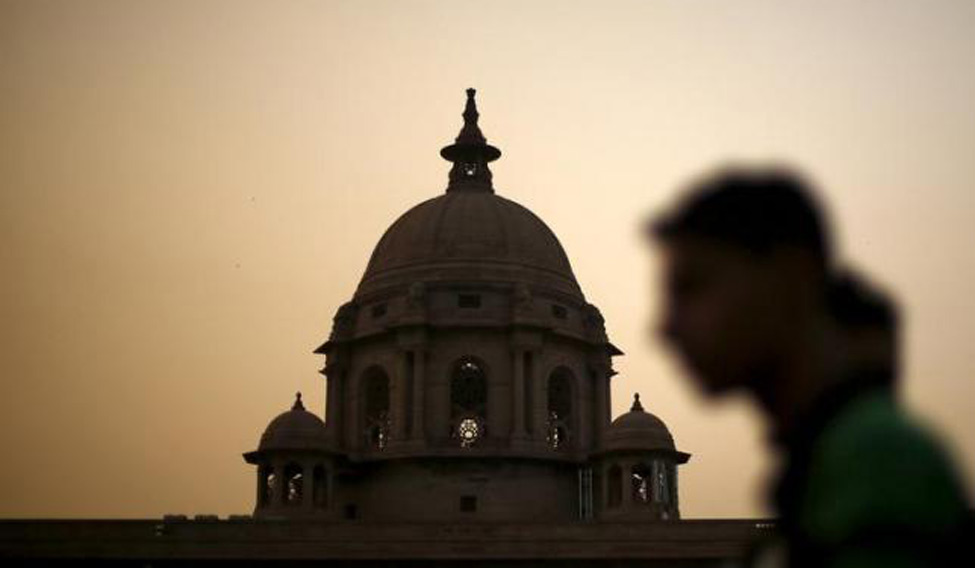The Indian government may cut back on expenditure in the coming months, to ensure that its fiscal deficit target doesn't slip beyond the estimated 3.2 per cent of Gross Domestic Product (GDP) in the current financial year ending March 2018, according to economists.
The government's fiscal deficit touched 96 per cent of the full year estimate in just seven months ending October, driving nervous investors to sell-off shares. The benchmark BSE Sensex and NSE Nifty 50 indices plunged 1 per cent on Friday, after slipping more than 1 per cent on Thursday. In the comparable period a year ago, the cumulative deficit stood at 79 per cent of the GDP.
“It (the fiscal deficit data) actually gives an impression that when you cover 96 per cent in seven months, its always going to be difficult for you to stick to the normal target,” said Madan Sabnavis, chief economist at Care Ratings.
According to official data released late on Thursday, India's fiscal deficit stood at Rs 5.25 lakh crore (96 per cent of the budget estimate) in April-October, while revenue receipts stood at Rs 7.29 lakh crore (48.1 per cent of the budget estimate).
“If the government has to maintain the 3.2 per cent fiscal deficit, it may have to cut down on the capex and some other discretionary spending to ensure that this number is not breached,” added Sabnavis.
He says, how much the government will cut its expenditure will depend on the extent of tax and non-tax revenue generation. So far, Goods and Services Tax (GST) collections have showed a mixed trend.
GST collections slipped to Rs 83,346 crore in October, from more than Rs 90,000 crore in each of July, August and September.
A slowdown in government spending was already visible in the second quarter after front loading on expenditure in the first quarter. Data showed that government's final consumption expenditure was at 4.1 per cent in July-September, compared with 17.2 per cent in the first quarter.
Some economists say, the government may have to cut expenditure further, else there was a likelihood of it missing the fiscal deficit estimates.
“A combination of higher spending needs (on bank recapitalisation plans, public investments) and weak revenues, a likely miss in non-tax revenues which only reached 33 per cent of the budgeted target in first seven months; lower GST collections and higher oil prices, raise the possibility of a modest miss in the FY18 fiscal deficit target,” said Radhika Rao, economist at DBS Bank.
Government cutting expenditure further to maintain its fiscal deficit target, would in turn raise downside risk on the economic growth, added Rao.






